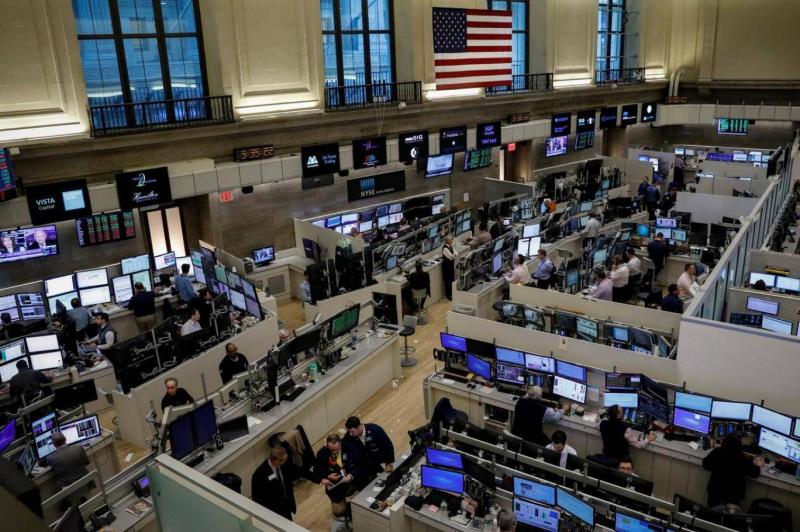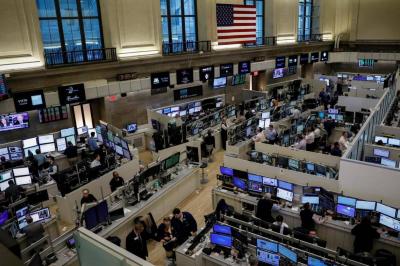The global financial markets have been engulfed in red, resembling historical crashes, with Japan's stock indices plummeting to their lowest levels since 1987. This decline was quickly followed by falls in global currencies, Asian, Arab, and European markets, along with severe losses in oil and cryptocurrencies. This situation has prompted questions about the causes of this crisis. Global stock indices dropped on Monday, with both the dollar and euro falling by 2% against the Japanese yen. Major stock indices opened lower, with declines of 2.42% in Paris, 1.95% in London, 2.49% in Frankfurt, 3.05% in Amsterdam, 3.31% in Milan, 2.97% in Zurich, and 2.79% in Madrid.
These declines can be attributed to three main reasons. First is the weak jobs report in the U.S., which has sparked fears of the world's largest economy entering a recession. Second, the Bank of Japan raised interest rates more than expected by 25 basis points. The third reason is the escalating geopolitical tensions in the Middle East between Iran and its proxies on one side and Israel on the other.
These factors have heightened investor fears, igniting a sell-off in global financial markets as they seek to avoid risks and flock to gold as a safe haven. Stephen Innes, an analyst at SPI Asset Management, noted that this downturn "is due to the U.S. jobs report released on Friday, which reflected a drop in stock and bond yields" on Wall Street in New York.
In the U.S. jobs report, the unemployment rate rose to 4.3% in July, compared to the expected 4.1%, marking the highest rate since October 2021. Subsequently, bond yields dropped significantly, indicating that the Federal Reserve might resort to more significant interest rate cuts than previously anticipated. Innes stated that if "the Federal Reserve cuts rates by 50 basis points in September," rather than the 25 basis points expected by the market, "it would be his way of acknowledging" that it took too long to soften its monetary policy.
Additionally, analysts at Deutsche Bank observed that the expectations regarding the number of interest rate cuts by the Federal Reserve "over the next twelve months are typically only seen during recession periods." In the bond market, U.S. interest rates, which move inversely to bond prices, continued to decline, dropping to 3.76% at 07:25 GMT, compared to 3.79% on Friday for ten-year bonds, indicating investor interest in assets that provide more security compared to risky equities.
In Asian stock markets, the decline in indices was particularly evident on Monday, especially in Tokyo, where its main index, the Nikkei, fell by 12.4%, losing 4,400 points in its worst historical drop since the stock market crash in October 1987. The broader Topix index dropped by 12.23%. Taiwan's stock market fell by more than 8%, while Seoul's plunged by over 9%. Chinese stock markets saw more modest declines, with Hong Kong's Hang Seng index dropping 2.13% in recent trading, while the Shanghai Composite index fell by 1.54% and Shenzhen by 1.85%.
Rising interest rates in Japan and a risk-averse approach were noted by Pepperstone's strategist "Dylan Woo," who stated: "The immediate reason for the risk aversion is the unexpected rise in interest rates" announced by the Bank of Japan on Wednesday. This monetary tightening after years of negative interest rates, coupled with a slowdown in U.S. economic activity, has significantly accelerated the appreciation of the yen, also supported by interventions from the Bank of Japan in the foreign exchange market. However, this currency movement is seen as negative for Japanese exporters who have benefited from a weaker yen.
The dollar declined by 2.17% to 143.35 yen, while the euro fell by 1.99% to 156.72 yen. The price of Bitcoin dropped by 11.70% to $52,217.
The banking sector faced significant pressures, particularly in Japan, where shares of Mitsubishi UFJ Financial Group fell by 13.5%, Sumitomo Mitsui Financial Group by 14.6%, Mizuho by 12.8%, and Nomura by 18.59%. In Europe, UniCredit dropped by 6.54%, Intesa Sanpaolo in Milan by 5.57%, Deutsche Bank in Frankfurt by 5.12%, Société Générale in Paris by 5.05%, and Barclays in London by 5.08%. The technology sector also saw notable declines, with ASML in Amsterdam falling by 4.46% and BE Semiconductor Industries by 5.17%. In Frankfurt, Infineon dropped by 2.34%, while in Paris, STMicroelectronics fell by 5.10% and Capgemini by 2.93%.
Additionally, markets are under further pressure from rising tensions in the region following the assassination of Hamas's political bureau chief Ismail Haniya in Tehran. Haniya's assassination came the day after a major military leader of Hezbollah was killed in an Israeli airstrike in Beirut. Iran and its allies have vowed to respond to these assassinations. Dozens of airlines have canceled flights to Lebanon and Israel amid speculation about potential confrontations between Hezbollah and Israel, with many countries advising their citizens to avoid travel to Lebanon and urging those there to leave immediately.




